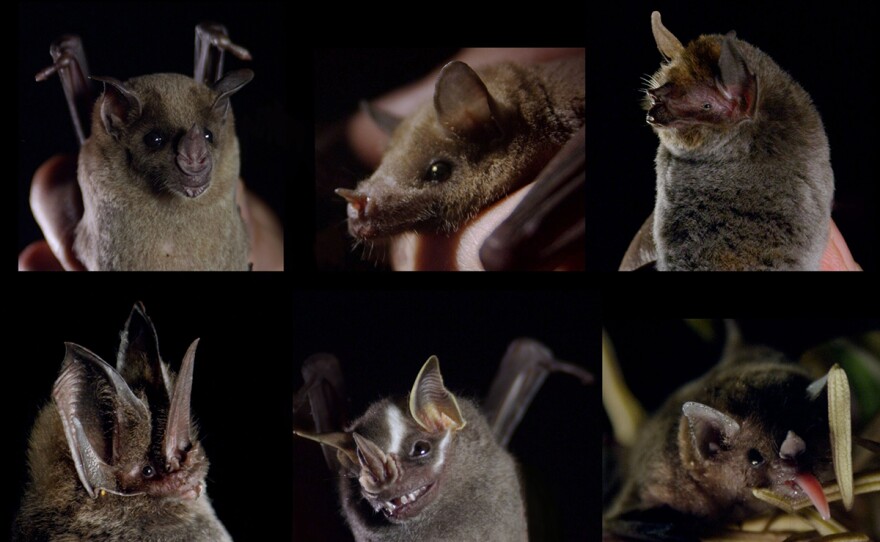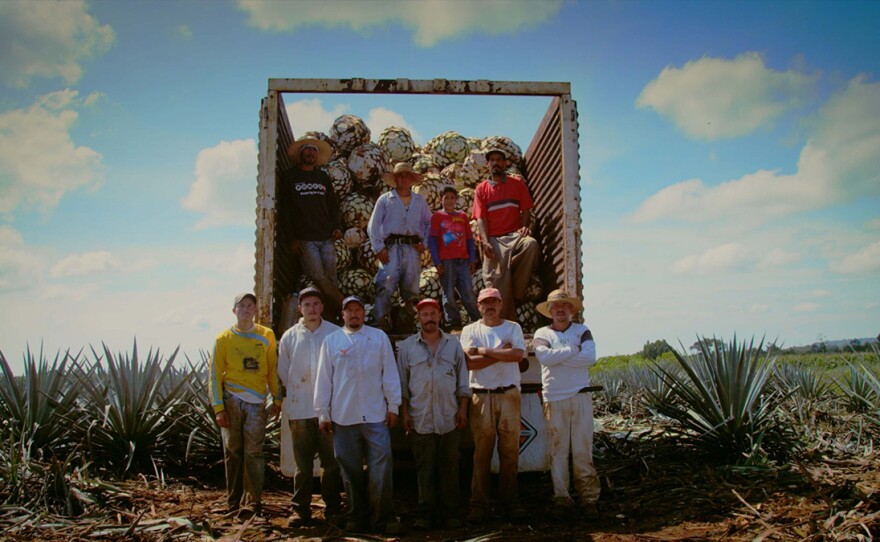Wednesday, Aug. 9, 2023 at 8 p.m. on KPBS TV / Stream now with KPBS Passport!
Since ecologist Rodrigo Medellin first kept bats in his bathroom as a child, he has dedicated his life to saving them. Now Mexico’s most famous export, tequila, is at stake. Medellin’s beloved lesser long-nosed bat is crucial to the liquor – it pollinates the plants the drink is made from. To save these bats from extinction, Medellin must track the bats’ epic migration across Mexico, braving hurricanes, snakes and seas of cockroaches. Sprinkling harmless UV dust on bats and following their glowing guano across the desert, Medellin devises innovative methods to conserve Mexico’s bat population. NATURE “The Bat Man Of Mexico” is narrated by David Attenborough.

Buzzworthy Moments:
- More than three million bats live in the caves of Calakmul. To avoid being eaten, they form a living tornado when they fly. In this whirling mass, it’s almost impossible for their predators to choose a target.
- To track the migration patterns and distances of the lesser long-nosed bats, Medellin coats the bats he catches in harmless UV dust, which they lick off and digest. The glowing dust passes through their system, and by tracking the glowing bat droppings, he can prove how far they’ve flown. This is a method used when tracker technology is unavailable.
- Medellin sets up remote cameras in a bat “nursery.” Bats synchronize their births so that a colony’s newborns all arrive over the course of 2-3 weeks. The camera catches a mother giving birth – the first time this behavior has been filmed.
Noteworthy Facts:
- There are more than 1,200 species of bats in the world.
- Bats are the main pollinators of agave plants. Tequila is obtained through the distillation of juices from agaves. More than a quarter billion liters of tequila were exported from Mexico in 2020.
- For centuries, bats were hated in Mexico because of their association with evil. People would hunt them down and kill them, burning them in their caves. In the early nineties, their populations crashed, with the lesser long-nosed bats facing extinction.

Watch On Your Schedule:
This episode is available to stream with KPBS Passport, a benefit for members at $60 or more yearly, using your computer, smartphone, tablet, Roku, AppleTV, Amazon Fire or Chromecast. Learn how to activate your benefit now.
Join The Conversation:
NATURE is on Facebook + Instagram + @PBSNature on Twitter #NaturePBS
Credits:
A Windfall Films West production for BBC and Animal Planet. David Attenborough is narrator and Tom Mustill is director (NATURE "The Whale Detective," 2020). For NATURE, Fred Kaufman is executive producer. Bill Murphy is series producer and Janet Hess is series editor.






